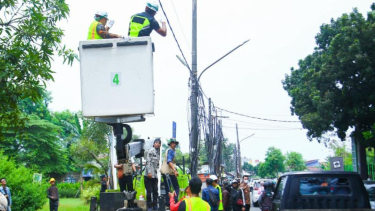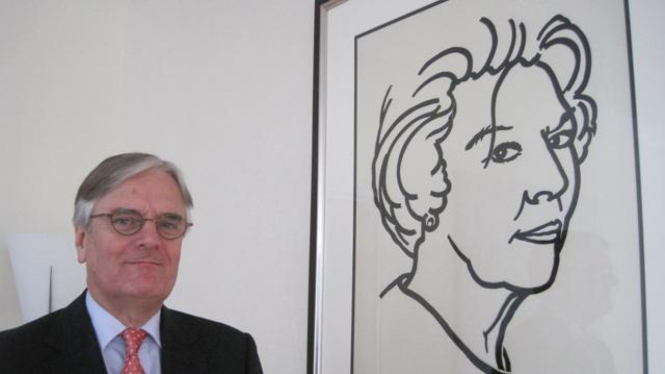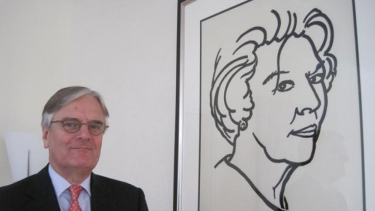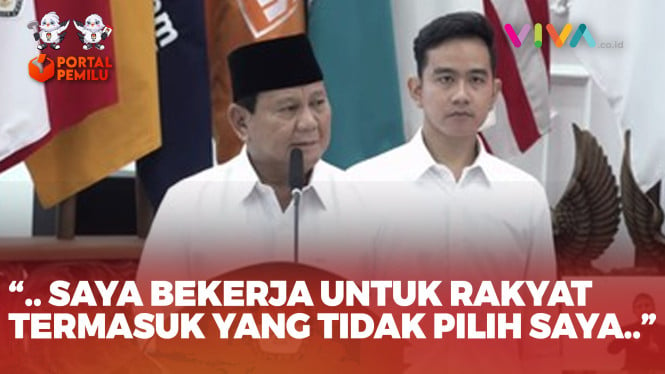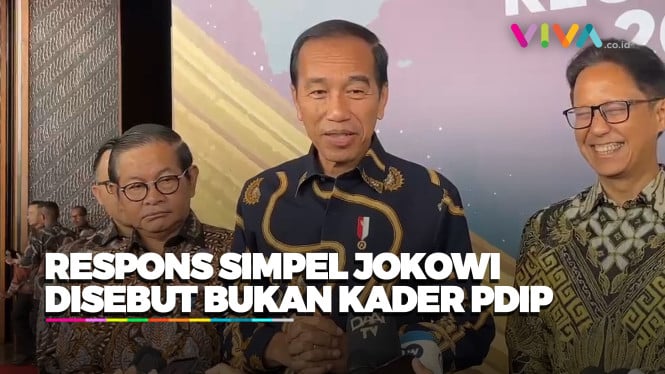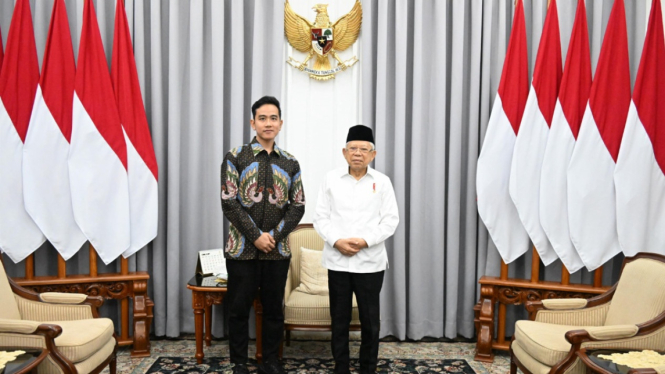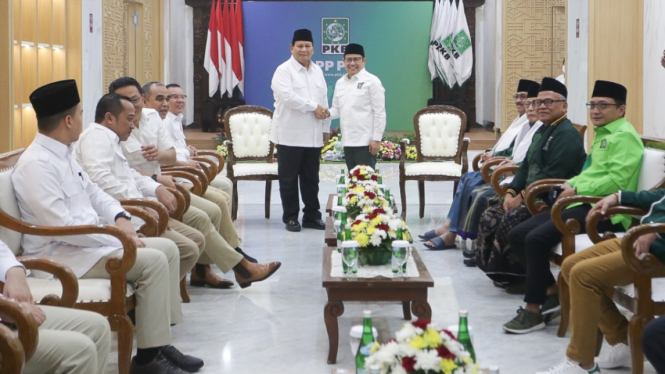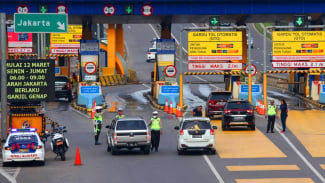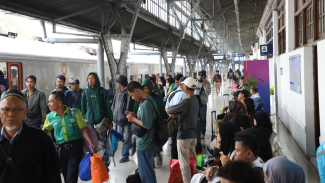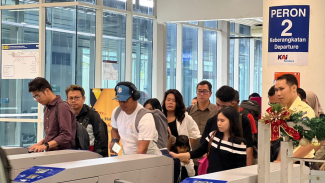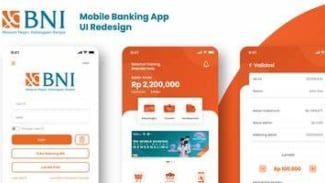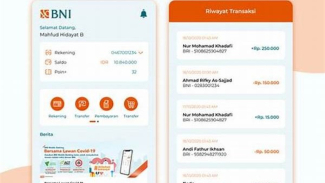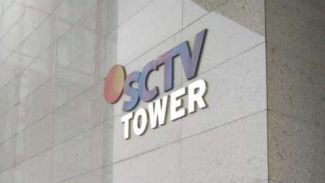- VIVAnews / Renne Kawilarang
VIVAnews – Dutch Ambassador to Indonesia, Tjeerd de Zwaan, believes the relationship between his country and Indonesia has been very strong. The postponed state visit of President Susilo Bambang Yudhoyono to the Netherlands last year, for example, would not disrupt the solid partnership between the two nations.
“It is important that we should not focus solely on the issue of the postponement of the visit because it is not a qualification of the bilateral relationship,” de Zwaan told VIVAnews at the Embassy of Netherlands in Jakarta, March 2011.
De Zwaan also said the Dutch government does not recognize the existence of the so-called Republik Maluku Selatan (RMS). An activist of the separatist groups filed a lawsuit to the local court in The Hague to arrest President Indonesia - because of some alleged human rights violation cases - if he paid a visit to the country. The court rejected the lawsuit, but President Yudhoyono had decided to postpone the visit.
“The Dutch government has made it very clear: First, we recognize the unity and the territorial integrity of Indonesia. Second, the Dutch government does not recognize the so-called RMS,” de Zwaan emphasizes. Although both countries have yet to set a new timetable, the ambassador is sure that when both sides think that the time is right, they would see a possibility to reorganize the visit
The Utrecht-born senior diplomat also highlighted that the relationship between the two nations has been going strong in many sectors, ranging from economics, trade, culture, to football.
De Zwaan is happy to hear that many individuals living in the Netherlands are interested to play football in Indonesia. One of them is Irfan Bachdim. The young player, who is of Indonesian descent, has returned home to pursue a career as a professional footballer after spending several years learning football in the Netherlands.
"On the way home from the embassy, I often see a photo of him in a big billboard for a product," says de Zwaan.
Ambassador de Zwaan presented his diplomatic credential as the Dutch envoy in Indonesia to President Yudhoyono on 21 September 2010. Previously, he was the ambassador in several “Hot Spot” countries, such Egypt, Pakistan and Afghanistan.
Here are excerpts of the interview with Ambassador de Zwaan.
The Netherlands since October 2010 has established a new government under the leadership of Prime Minister Mark Rutte. Do you see any significant change in the Dutch foreign policy, including its relationship with Indonesia?
I think there is no change. Based on its historical and traditional perspective our country is internationally-oriented.
This can be seen from the country's geographical position and its size, the Netherlands have been long time ago focusing itself to move outward. In fact, our country is the third largest exporter of agricultural products and the eighth largest exporter in all products globally.
The new government believes very strongly in partnerships around the world, particularly with the partnerships where trade and development go hand in hand. The Cabinet looks very clearly towards Asia, Southeast Asia or ASEAN and its members, and particularly Indonesia.
How significant is Indonesia for the foreign policy of the new Dutch government?
Indonesia is natural and strategic partner for the Netherlands for several reasons. Indonesia, of course, has a very distinct profile in the region. This year Indonesia is assuming the chairmanship of ASEAN.
Indonesia is also active in APEC [Asia Pacific Economic Cooperation] and ASEM [ASEAN Europe Meeting]. Of course, Indonesia has received significant attention because of domestic developments, for example its effort to improve democracy and it has clear views of human rights issues.
The Netherlands put a strong belief that Indonesia has a decisive role in the region. On bilateral level, we are excited to have a stronger relationship with Indonesia.
These developments are in line with the Dutch foreign policy, which is forward-looking and focuses on trade and business. The two countries also cooperate in global forums like in the United Nations [UN].
As a member of the European Union, the Netherlands is the important gateway for the region and this is a benefit for many countries, including Indonesia. For example, the Garuda Indonesia airlines last year reopened its flight service to Europe. The Netherlands played significant role by facilitating the re-entry of Garuda Indonesia to the region.
In trade sector, we very much consider Indonesia as one of the main gateways into Asia. On the other hand, Indonesian businessmen could take advantage of the major port city in the Netherlands, Rotterdam, as a gateway to Europe.
President Susilo Bambang Yudhoyono in October 2010 postponed his visit to the Netherlands after an activist of the separatist group, Republik Maluku Selatan (RMS), filed a lawsuit to a local court in The Hague to arrest the president on human rights violation cases. Although the court rejected the lawsuit, the rescheduling has yet to be decided. How does the Dutch government respond to this matter?
The Dutch government has expressed regret that the president of Indonesia felt obliged to postpone the visit. However, both governments have agreed that the decision to postpone the visit would not affect the relationship between the two countries. This is because the bilateral relationship has been going strong for a long time, so the postponement should not have the adverse effects.
Have both governments already set the new timetable for the delayed visit?
No they have not, but that should not come as a surprise. A state visit takes a very long time for organizing. I think it is important to realize that the contacts at various levels between Indonesia and the Netherlands still continue and I am sure that when both sides think that the time is right, we would see a possibility to reorganize the visit.
So do you think it is difficult to reschedule the visit of President Yudhoyono to the Netherlands this year?
Considering the practical reasons, I do not expect it can be taking place this year. But it is important that we should not focus solely on the issue of the postponement of the visit because it is not a qualification of the bilateral relationship.
What is the Dutch government's stance on the existence of the Republik Maluku Selatan (RMS)?
The Dutch government has made it very clear: First, we recognize the unity and the territorial integrity of Indonesia. Second, the Dutch government does not recognize the so-called RMS.
Do you think that the delay of the President Yudhoyono's visit may hamper the bilateral partnership in the future?
I am pleased to say it again that the issue of the postponement brings no effect to the bilateral relationship between two countries. I think that the day-to-day practice by the government from both countries makes it very clear that the relationship between Indonesia and the Netherlands have been running strong.
After the postponement of the visit, former Indonesian Foreign Minister Hassan Wirajuda was visiting the Netherlands in last November. He was invited to deliver an opening speech in a forum.
Last month, February 2011, we welcomed the Mayor of Rotterdam to Jakarta. We are looking forward for the Dutch Attorney General’s visit to Indonesia next week to attend an international conference and meet colleagues in Indonesia.
In addition, there will be regular meetings of senior officials from the Ministry of Foreign Affairs from both countries in the coming weeks. We also hope to discuss the possibility of official visits at ministerial level.
What are the bilateral projects in Indonesia that have been committed by both countries this year?
The new Dutch government has decided to cooperate with Indonesia in certain fields. In the legal sector, for example, we agree to cooperate on capacity building and exchange contacts between officials from the Constitutional Court and the Supreme Court.
Cooperation is also carried out on food security and agriculture sector, which have been established for a long time. The partnership between the two countries will also include higher education sector and scholarship programs.
In the field of water management, we intend to pass on expertise in several cities in Indonesia. Processing of water resources is closely related to climate change issues.
The government of Rotterdam recently set up an agreement with the government of DKI Jakarta for flood control programs. Similar cooperation is also applied in Semarang. So there are so many sectors of cooperation carried out by both countries.
What about economic and trade cooperation. Do you see an increasing trend in those partnerships even though the two countries have just dealt with the global financial turmoil in 2008?
I take a note on one thing; the Indonesia's economy has been running very well despite the global financial crisis a couple years ago. The Indonesia's economic growth by 6.1 percent last year is a positive sign while the others are still struggling to recover.
The other thing is the volume of trade between the two countries, which is currently more profitable for Indonesia. The Dutch exports to Indonesia amounted to 450 million euro, while our imports amounted to 1.9 billion euro from your country. Most of Indonesia's imports sail through the port city of Rotterdam.
So we have to focus of boosting up our exports to Indonesia to become balanced. But we are also pleased with the Indonesia’s economic development.
The Netherlands is in the top ten of foreign investors in Indonesia. Many Dutch companies, small and medium-scale, have made business with Indonesia. It is worth between $600 million and $ 1.2 billion. We are also listed as the fourth largest foreign investor in ASEAN.
What Indonesia should do to attract more Dutch investors?
There are things need to be addressed. Indonesia should be consistent in investment regulations, and such a situation does not currently exist. We see many rules overlap against each other. This situation makes foreign investors difficult to understand the situation as well as to make their business expectations.
The other thing that should be concerned is that many foreign investors already active in Indonesia should deal with new legislations, which are contradicting to the previous agreement. That ultimately disrupts their focus.
There are two rules that should deserve attention. First is horticultural law, where the share of property ownership by foreigners is suddenly reduced to 30 percent.
Furthermore, we also highlight the regulation of postal services. A similar situation is taking place. Foreign companies come to invest by referring to previous regulations. However, the host government changes the rules without taking any attention to the previous agreements [with foreign investors].
When those rules have been improved, then the situation will get better.
On football issue, Indonesia is now desperately looking for young talents to strengthen the quality of its national team, which always gives poor performance. Apparently, many young people who have Indonesian descent are playing football in the Netherlands and enjoying good competition there. Does the Dutch government have an interest to help Indonesia to improve its football quality?
I think Indonesia played well at the ASEAN Cup Championship last year and became the second winner. To be frank, Indonesia's football achievement is not much different from the Netherlands’ in recent years. Our national team has performed several times in the [World Cup] finals, as in the 2010 World Cup, but never became the champion.
But I see a great interest from the Dutch soccer players to play in Indonesia. There are also players from the Netherlands who have been joining Indonesia clubs, such as Irfan Bachdim. On the way home, I often saw a photo of him in a big billboard for a product.
I believe many Dutch football players and coaches as well as those who have Indonesian decent residing in the Netherlands have a great desire to play in Indonesia. Accordingly, I do not see any space for the government to participate in improving the quality of football in Indonesia. Moreover, the soccer associations from the two countries have made a good contact.
Personally I am also impressed with the number of Indonesian descent players who played in the Netherlands and who took an opportunity to play for our national team, such as Giovanni van Bronckhorst, Sonny Silooy, and Simon Tahamata.
